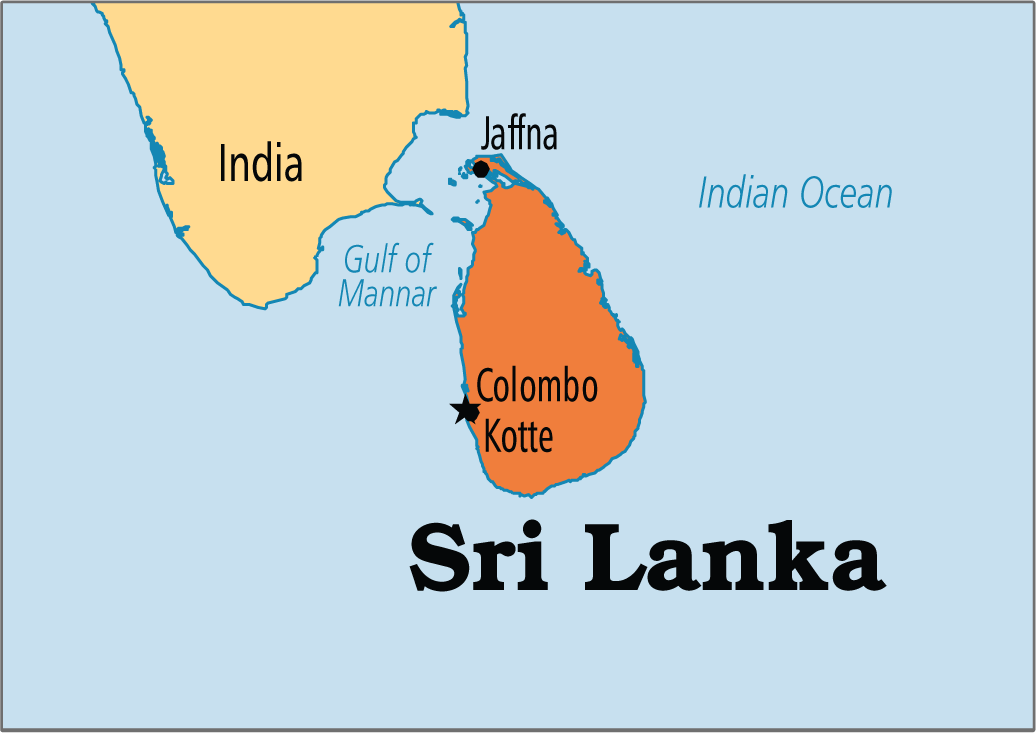International Relations
Four Pronged Strategy on Srilanka Crisis
- 03 Dec 2021
- 6 min read
Why in News
Recently, India and Sri Lanka agreed to a four-pronged approach to discuss initiatives on food and energy security to help mitigate Sri Lanka’s economic crisis.
- Earlier this year, Sri Lanka declared an economic emergency amid rising food prices, a depreciating currency, and rapidly depleting forex reserves.
Key Points
- Four-Pillar Initiative Comprises:
- Lines of credit: Lines of credit for food, medicines and fuel purchases granted by India.
- Lines of credit is a credit facility extended by a bank or any other financial institution to a government, business or an individual customer, that enables the customer to draw the maximum loan amount.
- Currency Swap: A currency swap agreement to deal with Sri Lanka's balance of payment issues.
- The word swap means exchange. A currency swap between the two countries is an agreement or contract to exchange currencies with predetermined terms and conditions.
- Modernisation Project: An early modernisation project of the Trinco oil farms that India has been pursuing for several years.
- The Trincomalee Harbour, one of the deepest natural harbours in the world, was developed by the British during World War II.
- In particular, the projects to develop oil infrastructure in Trincomalee have been hanging fire since 2017.
- Indian Investments: A Sri Lankan commitment to facilitate Indian investments in various sectors.
- Lines of credit: Lines of credit for food, medicines and fuel purchases granted by India.
- Recent Issues in India-Sri Lanka Relations:
- Killing of Fisherman:
- Killing of Indian fishermen by the Sri Lankan Navy is a lingering issue between these two nations.
- In 2019 and 2020, a total of 284 Indian fishermen were arrested and a total of 53 Indian boats were confiscated by the Sri Lankan authorities.
- Killing of Indian fishermen by the Sri Lankan Navy is a lingering issue between these two nations.
- East Coast Terminal project:
- This year (2021) Sri Lanka cancelled an MoU signed with India and Japan for the East Coast Terminal project.
- India protested the cancellation though it later agreed to the West Coast Terminal being developed by the Adani group.
- This year (2021) Sri Lanka cancelled an MoU signed with India and Japan for the East Coast Terminal project.
- Influence of China:
- China’s rapidly growing economic footprint (and political clout as a corollary) in Sri Lanka is straining India-Sri Lanka relations.
- China is already the largest investor in Sri Lanka, accounting for 23.6% of the total Foreign Direct Investment (FDI) during 2010-2019 as against 10.4% from India.
- China is also one of the largest export destinations for Sri Lankan goods and holds over 10% of its external debt.
- China’s rapidly growing economic footprint (and political clout as a corollary) in Sri Lanka is straining India-Sri Lanka relations.
- 13th Amendment of the Sri Lankan Constitution:
- It envisages devolution of necessary powers to the provincial councils to address the just demand of the Tamil people for equality, justice, peace, and respect within a united Sri Lanka.
- Killing of Fisherman:
India - Sri Lanka Relations
- Background: India-Sri Lanka relationship is more than 2,500 years old and both sides have built upon a legacy of intellectual, cultural, religious and linguistic intercourse.
- Support Against Terrorism: During the course of the civil war, India supported the right of the Government of Sri Lanka to act against terrorist forces.
- Support For Rehabilitation: The Indian Housing Project is Government of India’s flagship project of developmental assistance to Sri Lanka. Its initial commitment is to build 50,000 houses for those affected by the civil war as well as for the estate workers in the plantation areas.
- Assistance during Covid-19: The Reserve Bank of India (RBI) had signed an agreement for extending a USD 400 million currency swap facility to Sri Lanka to boost the foreign reserves and ensure financial stability of the country, which was badly hit by Covid 19 pandemic. Recently, India has also supplied Covid-19 Vaccines to Sri Lanka.
- Joint Exercises: India and Sri Lanka conduct joint Military (Mitra Shakti) and Naval exercise (SLINEX).
- Participation in Groupings: Sri Lanka is also a member of groupings like BIMSTEC (Bay of Bengal Initiative for Multi-Sectoral Technical and Economic Cooperation) and SAARC in which India plays a leading role.
Way Forward
- A subterranean trust deficit exists between India and Sri Lanka yet neither Sri Lanka nor India can afford to have strained ties.
- However, as a much larger country, the onus is on India to carry Sri Lanka along. India needs to be extremely patient and avoid reacting to any pinpricks and engage Sri Lanka even more regularly and closely, especially at the highest levels.
- There is a need to step up our people-centric developmental activities while scrupulously staying clear of any interference in Colombo’s domestic affairs.
- Nurturing the Neighbourhood First policy with Sri Lanka is important for India to preserve its strategic interests in the Indian Ocean region.





